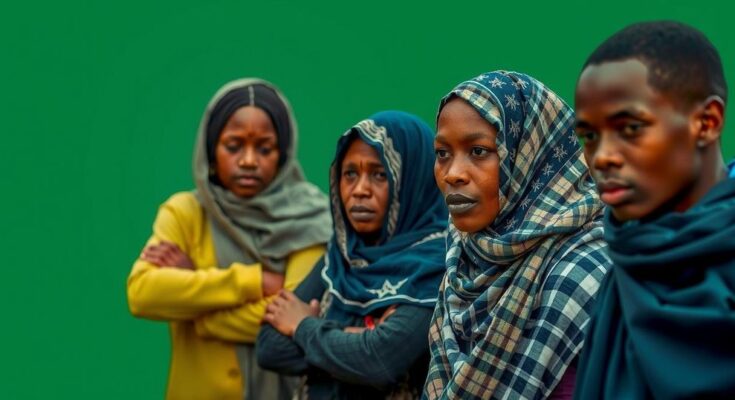Human Rights Watch has reported that Sudanese refugees in Ethiopia’s Amhara region are at grave risk, facing violence, abduction, and forced labor as a result of ongoing conflict between Ethiopian military forces and militia groups. Refugees report numerous abuses since April 2023, raising urgent concerns regarding their safety and the adequacy of support systems available to them. HRW has called on the Ethiopian government to provide proper protection to these vulnerable populations.
A recent report by Human Rights Watch (HRW) has highlighted the dire circumstances faced by Sudanese refugees in Ethiopia’s Amhara region amid escalating violence and insecurity. Refugees, fleeing the conflict in Sudan, have encountered severe abuses including violence, abduction, and forced labor from various armed groups. The report spans incidents from April 2023 to September 2024, emphasizing that Sudanese refugees have been specifically targeted during this period. Laetitia Bader, HRW’s deputy Africa director, stated that these refugees, having fled horrific situations, are in urgent need of protection rather than further threats to their safety. The Amhara region, which houses most refugee camps, has experienced long-standing tensions, particularly between the Amhara and Qemant communities. The situation deteriorated significantly in August 2023 when conflict erupted between Ethiopian military forces and local Fano militias, further compromising the safety of the refugees residing in the camps. Reportedly, refugees have faced numerous incidents of theft, assaults, abductions, and in some cases, murder, leading them to protest against their living conditions and for protection against militia attacks. On September 5, 2023, Sudan even closed its El Gedaref border crossing with Ethiopia due to the increased violence. In the Awlala and Kumer camps, experiences of violence are prevalent. Refugees reported instances where armed men entered their tents demanding money and threatening violence if the demands were not met. Refugees described their fears, citing experiences where their possessions were seized under threat of death. Furthermore, HRW’s investigation indicated that at least 347 cases of forced labor connected to militias operating near the camps were confirmed between 2023 and 2024. In July 2024, the UNHCR was compelled to close the Awlala and Kumer camps due to ongoing insecurity and relocate refugees to the Aftit camp. Unfortunately, conditions there did not significantly improve, leading many refugees to express concerns over continued violence and threats. As attempts to cross the border met with violent resistance from Ethiopian security forces, families have reportedly been forcibly separated, compounding the refugees’ trauma. Although Ethiopia’s Refugees and Returnees Service has rejected claims of forced relocations and abuse, HRW continues to urge the Ethiopian government to ensure the protection of refugees and relocate them to safer environments. Since the outbreak of conflict in Sudan, Ethiopia has become a refuge for over 90,000 Sudanese refugees and asylum seekers, including more than 38,000 who fled after violence erupted between the Sudanese Armed Forces and the Rapid Support Forces (RSF). HRW’s report, titled ‘Ethiopia: Fighting, Abuses Putting Sudanese Refugees at Risk,’ is critical for understanding the ongoing plight of refugees in Ethiopia.
The issue of Sudanese refugees in Ethiopia has garnered international concern, particularly with the deterioration of the security situation in the Amhara region. The ongoing conflict in Sudan, characterized by violence and political instability, has forced many individuals to flee their homes. This influx of refugees has heightened tensions in the receiving areas, leading to frequent and sometimes violent interactions between refugees and local militias. Organizations like Human Rights Watch are actively documenting these abuses, highlighting the need for humanitarian intervention and support for those affected by conflict and displacement.
The situation for Sudanese refugees in Ethiopia continues to be precarious, with reports of human rights abuses and ongoing violence threatening their lives. Despite claims by the Ethiopian government of a zero-tolerance policy towards refugee abuse, the experiences shared by refugees point to a troubling reality that requires urgent attention and action from international bodies. The circumstances underscore the need for the Ethiopian government to fulfill its obligation to protect refugees and ensure their safety as the conflict in the region persists.
Original Source: www.dabangasudan.org




